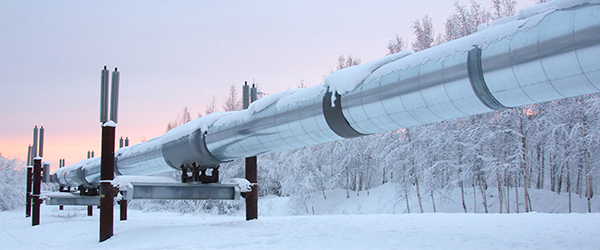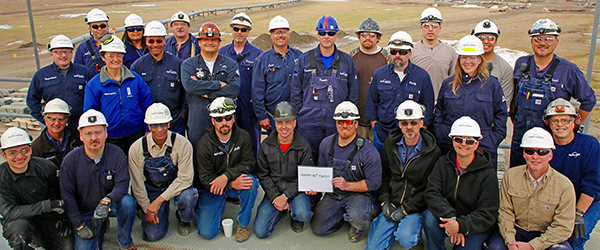2008: Michelle Egan Q&A
“Transparency is the Currency of Trust”
An interview with Michelle Egan, Chief Communications Officer, Alyeska Pipeline
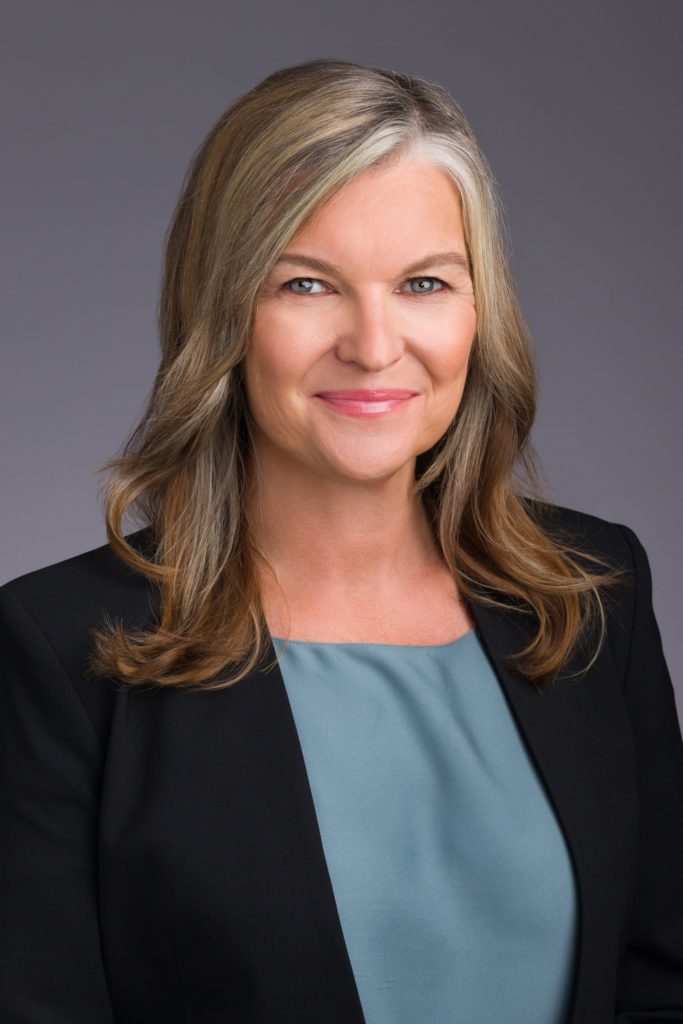 Michelle Egan joined Alyeska in 2008 as the Chief Communications Officer. Michelle oversees the company’s internal and external communication programs, including media, community, government, and stakeholder relations. She is well-regarded for her ability to model and sustain the highest communications and ethical standards for Alyeska and TAPS. Michelle is a highly respected and decorated public relations leader in Alaska, earning the distinction of Alaska’s Communicator of the Year in 2019. Michelle was selected to serve as the Chair of the Public Relations Society of America in 2023. She is a trusted mentor to many communications professionals across Alaska and the country.
Michelle Egan joined Alyeska in 2008 as the Chief Communications Officer. Michelle oversees the company’s internal and external communication programs, including media, community, government, and stakeholder relations. She is well-regarded for her ability to model and sustain the highest communications and ethical standards for Alyeska and TAPS. Michelle is a highly respected and decorated public relations leader in Alaska, earning the distinction of Alaska’s Communicator of the Year in 2019. Michelle was selected to serve as the Chair of the Public Relations Society of America in 2023. She is a trusted mentor to many communications professionals across Alaska and the country.
How has the role of Corporate Communications changed since you joined Alyeska in 2008?
“The role and the responsibilities have not really changed. What really has changed is the maturity and the depth of our team at Corporate Communications. The team has a very strong skill set and has longevity with Alyeska. We have built credibility and relationships based on trust, inside and outside of the company. This foundation allows us to fulfill our responsibilities and meet the communications needs of our employees and the company.”
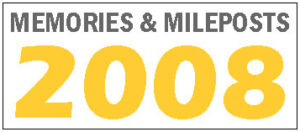 What is your personal philosophy on communication? How has this approach been successful in developing trust and strong stakeholder relationships?
What is your personal philosophy on communication? How has this approach been successful in developing trust and strong stakeholder relationships?
“There are two primary elements to my philosophy on communication. The first is transparency – you have to be open with information. Within Alyeska, we refer to this strategy as “no surprises.” Transparency is the currency of trust; it builds trust. When we are communicating in a transparent manner, we are communicating with our employees, stakeholders, and the media honestly, fairly and timely.
“The 2011 Pump Station 1 booster pump piping leak really sticks out to me as an example of when the practice of transparency, the development of strong relationships, and established trust were important factors in a successful response to the incident. Within moments of detecting the spill, the pipeline was shut down, initially for eighty-five hours. The company was able to build the case with our regulators that we were going to have a much bigger problem if we did not restart temporarily. Safely restarting the pipeline and engineering a bypass solution at Pump Station 1 was a complicated project that took place in a condensed timeframe, involved hundreds of individuals from Alyeska, its contractors, and state and federal regulators. It was completed under extraordinarily challenging conditions. Consistent, honest and timely communication and information sharing with employees, owners, regulators, elected officials, and the media from the Incident Management Team and the Crisis Management Team were important to building that trust that allowed for critical operation decisions to be made.
“The second element to my philosophy is internal communication is the foundation for all communications. Important information is shared proactively with the employees of Alyeska so that they understand what is occurring and have the opportunity to ask questions and engage. From that point, it is easy to talk with external stakeholders because the basis for communication has been set – external stakeholders do not receive information that employees have not received or have not had the opportunity to ask questions and understand.
“In 2018 when Alyeska was going through a strategic re-organization, how to communicate and inform employees of potential and upcoming changes was a key strategy. So much so, that an employee from Corporate Communications was assigned to the strategy team. For the entire year plus that the strategy team and the leadership team worked, they involved employees. There were listening sessions with employees, key pieces were shared with employees as they were being developed, a website was set up with up-to-date information. When it came time for the organization shift, leadership went out and talked to employee groups to explain the strategy and the process and actively encouraged employees to ask questions and understand what was going to occur. When people’s jobs changed, Human Resources did a great job of rolling it out and explaining the timeline and sequence of events related to jobs and placements. A change like the one that occurred in 2018 is never easy for employees.
“There was great care and deliberation in communicating with Alyeska’s employees. Throughout the process, external stakeholders, particularly the Alaska Congressional Delegation and state lawmakers, were kept informed of the work that the team was undertaking and were given updates on how particular changes or re-alignments may impact Alyeska’s workforce. But the real focus was on involving Alyeska’s employees and keeping them informed. Even with that focus, we didn’t always get things right and employees learned about company news from outside of the company. When it happened, the company president apologized and we learned from it and worked to rebuild that trust.”
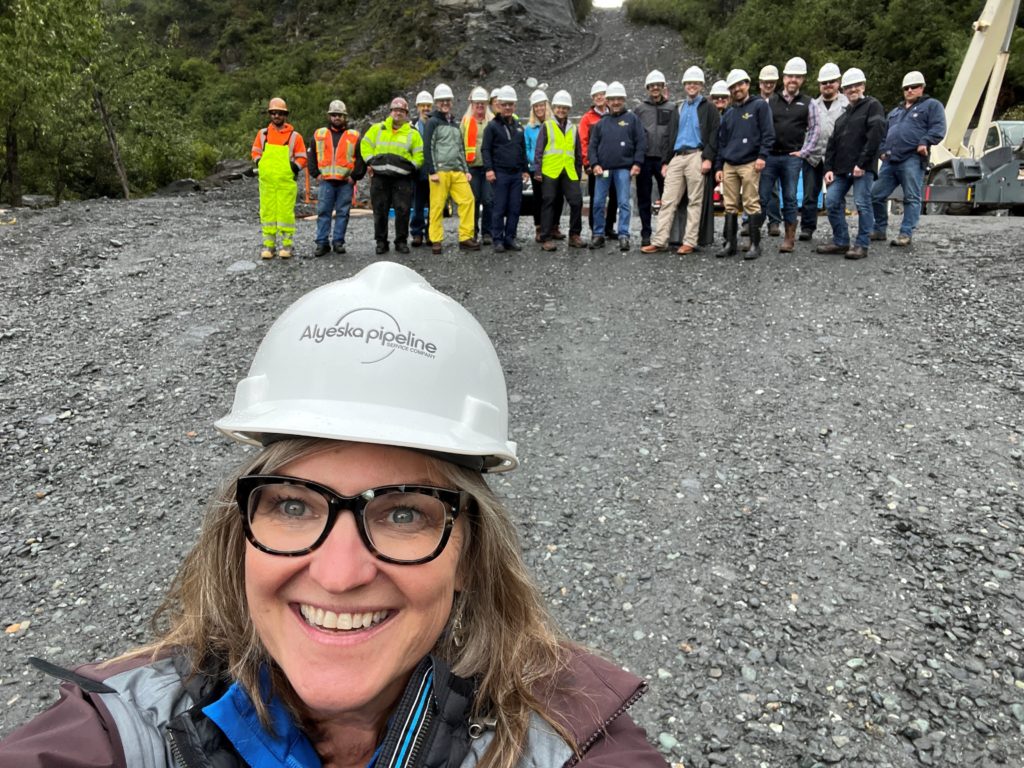 Alyeska has a lot of stakeholders – how do you manage the diverse relationships?
Alyeska has a lot of stakeholders – how do you manage the diverse relationships?
“Trust is the foundation of a relationship. The more trust we have, the better our business functions and the stronger our relationships are. How do you build trust? Listening and engaging openly builds the trust of stakeholders. Whether it is our employees, owners, contractors, regulators, elected officials, philanthropic organizations, trade associations, to build trust, we have to be the first and best source of information about Alyeska. We have a vast and diverse group of stakeholders, but the underlying basis with all of them is trust.”
Would you characterize communication as an inherent element of the culture at Alyeska?
“Open communication is essential to maintaining safe, efficient operations and positive relationships. So yes, I think that it is an inherent element of the culture at Alyeska.
“Alyeska’s emphasis on respectful, fair, and open communication starts on day 1 with the company. As an Open Work Environment, TAPS workers are free and encouraged to raise issues, concerns, and ask questions. TAPS workers contribute to maintaining the open work environment by engaging in an honest and respectful manner.
“Alyeska’s Code of Conduct establishes accountabilities for all Alyeska employees – foster and maintain a positive work environment and communicate in a professional and courteous manner; contribute to our open work environment by sharing concerns in an honest and respectful manner; share ideas; ask questions; Speak Up, Step Up. Communications is vital to what we do at Alyeska.”
